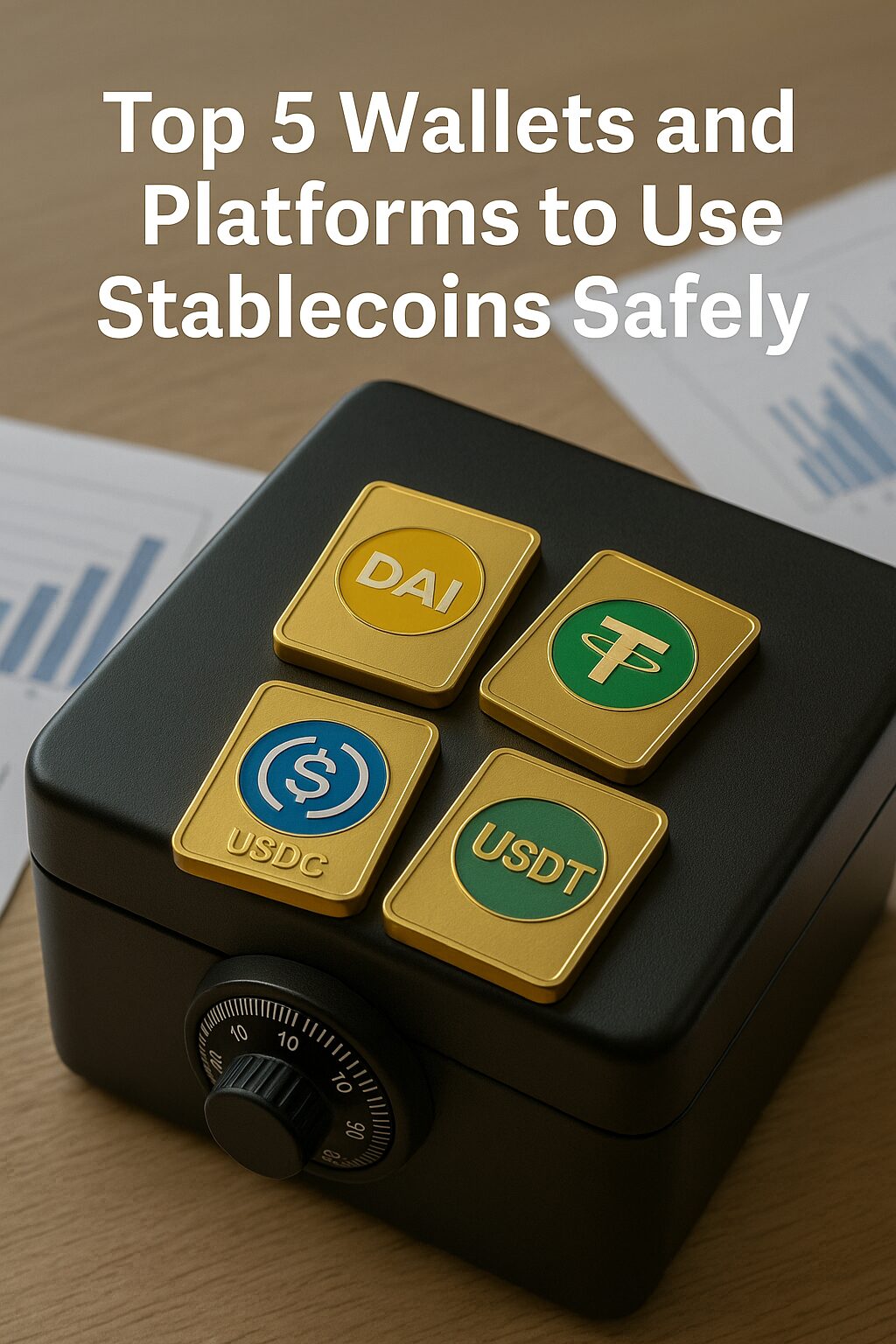Holding Stablecoins Isn’t Enough — Safety Matters
So you’ve bought some stablecoins.
Great — but where are you storing them?
Keeping your USDC or USDT in a random wallet can put you at risk of:
- Theft
- Platform bankruptcy
- Frozen funds
- Poor access to DeFi or interest tools
This guide breaks down the top 5 wallets and platforms for stablecoins — based on security, accessibility, user-friendliness, and extra features like yield or DeFi access.
Let’s make sure your digital dollars are truly safe.
1. Ledger (Hardware Wallet) – Maximum Security
If you want ultimate protection, go with a hardware wallet.
Ledger Nano S Plus or Nano X are among the most trusted.
Why It’s Great:
- Offline cold storage — no online hacking
- Supports USDC, USDT, DAI, GUSD, and many more
- Secure transactions via Ledger Live app
- Compatible with DeFi (via MetaMask connection)
Downsides:
- Not beginner-friendly
- Must purchase device ($79–149)
- Lost device or seed phrase = risk of loss
Best For:
- Long-term stablecoin holders
- High-value portfolios
- Security-focused users
2. MetaMask + Hardware Wallet – For DeFi Users
MetaMask is the most widely used non-custodial Web3 wallet.
You can store USDC, DAI, and many others, and connect to virtually every DeFi protocol.
Why It’s Great:
- Full DeFi access
- Non-custodial (you hold your private keys)
- Easily connect to platforms like Aave, Curve, Compound
- Available on desktop/mobile
Even Better With:
- Pairing MetaMask with Ledger = best of both worlds
Best For:
- Active DeFi users
- Yield farming with stablecoins
- DAO participants
3. Coinbase Wallet / App – For Beginners & U.S. Residents
Coinbase has two products:
- Coinbase Wallet (non-custodial)
- Coinbase App (custodial exchange wallet)
Why It’s Great:
- Very beginner-friendly
- High regulatory compliance (especially in the U.S.)
- Easy to buy/sell stablecoins directly
- Coinbase Wallet supports DeFi and NFTs
Caution:
- Coinbase App is custodial (not your keys)
- Custodial risk in case of platform issues
Best For:
- U.S. users
- First-time crypto users
- On-ramp/off-ramp convenience
4. Trust Wallet – All-in-One Mobile Powerhouse
Trust Wallet is owned by Binance but operates as a non-custodial wallet.
Supports multiple blockchains: Ethereum, BNB Chain, Polygon, Avalanche, Solana, etc.
Why It’s Great:
- 60+ stablecoins supported
- In-app DeFi browser
- Private key access
- Touch ID and Face ID login
Downsides:
- Risk of mobile device vulnerabilities
- UI can be overwhelming for total beginners
Best For:
- Mobile-first users
- Global users (especially outside U.S.)
- Altcoin and stablecoin diversity
5. Kraken / Gemini – Secure Centralized Platforms
If you want peace of mind without handling private keys, Kraken and Gemini offer regulated, secure custodial solutions.
Why They’re Great:
- Regulated in the U.S.
- FDIC-like protections for fiat
- Institutional-grade cold storage
- Earn yield (e.g., Gemini Earn, Kraken staking)
Limitations:
- Not fully DeFi-compatible
- Still custodial — not “your keys”
Best For:
- Passive holders
- Yield seekers
- Users avoiding self-custody complexity
Summary Table
| Platform | Type | Best For | Risk Level |
|---|---|---|---|
| Ledger | Hardware | Long-term, high-security holders | Very Low |
| MetaMask + Ledger | Web3 + Cold | DeFi users, yield farmers | Low |
| Coinbase Wallet/App | Custodial & NC | U.S. users, beginners, convenience | Medium |
| Trust Wallet | Mobile NC | Mobile users, multi-chain support | Medium |
| Kraken / Gemini | Custodial | Regulated peace of mind, earn yield | Low–Medium |
NC = Non-Custodial
Final Thoughts: Don’t Just Buy Stablecoins — Protect Them
Buying stablecoins is easy.
Keeping them safe? That’s the real challenge.
Ask yourself:
- Do I trust myself with private keys?
- Will I use DeFi?
- Do I want yield or pure storage?
Choosing the right wallet means matching your behavior to your tech.
This guide gives you a head start.
